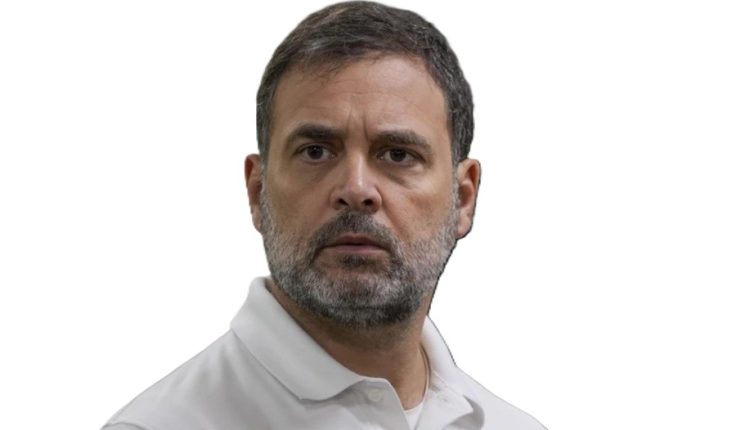By Suresh Unnithan
The 2025 Bihar Assembly elections have shattered any lingering myth about Rahul Gandhi’s credentials as a resolute political leader—one the opposition could truly rely on to spearhead the charge. The storied Indian National Congress, the vanguard of India’s freedom struggle and once the unrivalled architect of its democratic destiny, has been all but erased from the electoral map of Bihar. From a respectable 19 seats in 2020, the party has plummeted to a mortifying 6 seats out of 61 contested—a precipitous fall from double digits to a single-digit footnote that no chorus of conspiracy allegations can obscure. Even as Rahul Gandhi and the Congress reflexively decried “vote theft” and trained their ire on the Election Commission, the electorate of Bihar issued a verdict of crystalline clarity: they demand governance that produces immediate, tangible outcomes—not endless agitation from a leader who engages with politics as though it were a fleeting pastime.
Rahul Gandhi has never hidden his discomfort with the gritty, day-to-day demands of Indian politics. He appears in bursts—a Bharat Jodo Yatra here, a fiery speech there—then disappears for weeks or months at a time, often abroad, leaving the party rudderless. When he does engage, it is usually to level dramatic accusations (“the Constitution is in danger,” “votes are being stolen”) and then vanish before anyone can demand evidence or a plan of action. This “shoot-and-scoot” style may generate headlines, but it does not build booth-level organizations, nurture second-rung leaders, or convince ordinary voters that Congress is ready to govern.
The Bihar result is the predictable outcome of that approach. In 2020, Congress rode on Tejashwi Yadav’s coattails and still managed 19 seats out of 70 contested. In 2025, despite contesting 61 seats within the same alliance framework—a modest cutback that should have allowed for sharper focus—the party collapsed to 6, a net loss of 13 seats in a state where it once claimed deep roots. Its vote share remained anemic, barely registering as a factor in most constituencies. The message from the voter is unambiguous: Rahul Gandhi’s Congress is no longer seen as a credible vehicle for power, especially when even a reduced contest slate yields such poor returns.
Across the country, the same pattern repeats. State after state—Haryana, Maharashtra, Madhya Pradesh, and now Bihar—has delivered near-identical verdicts: when forced to choose between a government that (for all its flaws) delivers welfare schemes, roads, electricity, and law-and-order stability, and an opposition whose face is a leader who seems perpetually disengaged, voters choose delivery over drama. Rahul’s refusal to sit in Parliament regularly, his long absences, his reliance on a tiny coterie of unelected advisors, and his inability to retain talent (Scindia, Azad, Chavan, Deora, Vallabh—the list is endless) have convinced even traditional Congress voters that the party under him is not serious about power.
The defections are particularly telling. Almost every major leader who has left in the last decade has cited the same reasons: a paralyzed high command, zero empowerment of state units, and a leadership that prioritizes family control over electoral success. Rahul Gandhi surrounds himself with sycophants who tell him what he wants to hear, insulates himself from ground realities, and then expresses shock when the votes do not materialize. The result is a party that arrives at every election unprepared, under-campaigned, and overconfident in its own moral superiority—evident in Bihar, where extensive efforts like Rahul’s multi-day campaign tour and Kanhaiya Kumar’s padyatra failed to yield even a 10% strike rate.
Contrast this with the BJP, which treats every election as a war. Booth workers, data analytics, micro-targeting of welfare beneficiaries, and a leadership that is permanently in campaign mode—these are the boring, unglamorous essentials that Rahul Gandhi has never bothered to master. While he jets off or switches off, the BJP’s machinery never stops, propelling the NDA to 202 seats in Bihar’s 243-member house.
The public verdict is now settling into a cold, hard consensus: Rahul Gandhi is not seen as a productive political leader capable of holding power responsibly. The Bharat Jodo Yatras and the occasional viral soundbite cannot paper over the fundamental truth—he does not take politics seriously enough to do the relentless, unglamorous work required to win elections in today’s India. Bihar 2025, with its reduction of Congress to a single-digit footnote despite contesting 61 seats, is merely the latest and clearest confirmation of that national doubt.
Until Rahul Gandhi decides to treat politics as a full-time profession—or steps aside for someone who will—the Congress will continue its slide, and the Indian voter will continue to look elsewhere for governance that delivers


